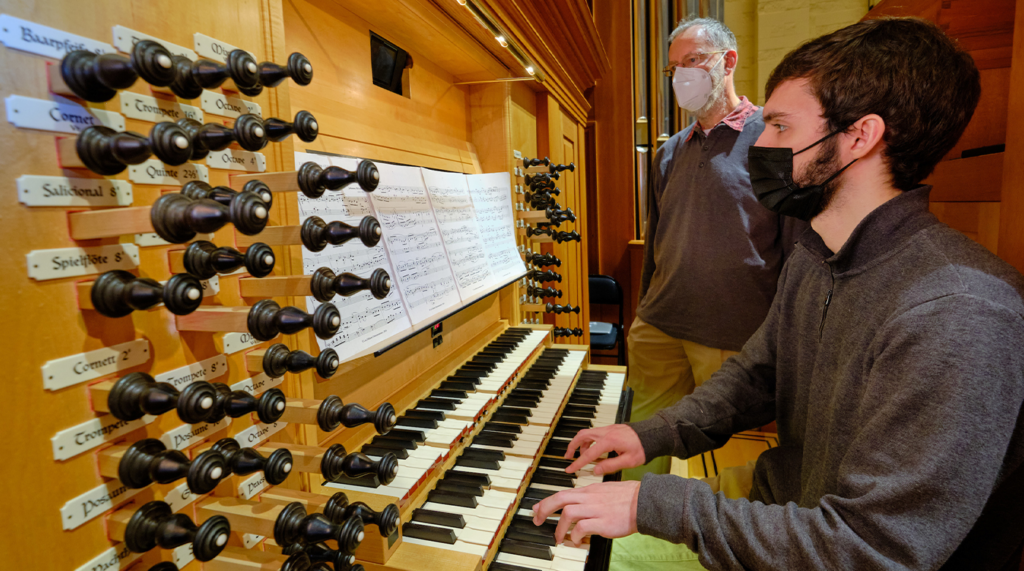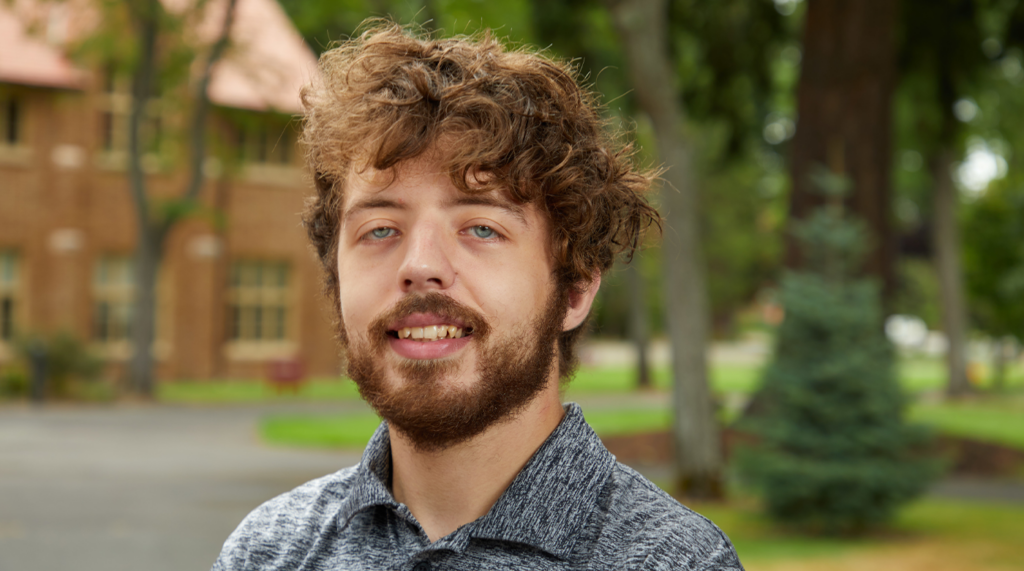Page 160 • (1,985 results in 0.03 seconds)
-

, music composition theory and conducted the Concert Chorus. “The music department in those early days was small and my father brought his teaching skills to composition classes, choral conducting and other diverse classes,” Fritts said. Fritts founded the Paul Fritts & Co. Organ Builders in 1979, and says he has been dedicated to the design and construction of high-quality pipe organs ever since. His company was commissioned by former music professor David Dahl to develop the Lagerquist Hall organ
-

in teaching. Instead, Lindhartsen wanted to study the business side of music. While PLU doesn’t offer a music business major, it does invite students to pursue an individualized major. This track offers students the power to design and propose their own program of study. It was through that pathway, under the guidance of professors and mentors, that Lindhartsen was able to develop a music business degree. “Through my involvement with LASR — the on-campus student media radio station — I was able
-

of innovation. “From the technology, to the business model, to game mechanics – games have fundamentally evolved at one of the fastest paces in all of technology,” he says. Another highlight, he says, is managing people. He still enjoys the business of product management and the craft of design, but it’s the personal collaboration that excites him the most. “I get to spend a lot of my time identifying, hiring and coaching talent,” he says. “I really enjoy finding people that have passion and
-
PLUTO and Language Instruction: Pedagogical InnovationsThe PLU Teaching Online Institute (PLUTO) provides pedagogy and technology training for faculty to learn and to innovate together as a cohort working to design online courses. Over this last year, several faculty from the Department of Languages and Literatures participated in the program. In Summer 2014, Dr. Bridget Yaden (Hispanic Studies) participated in the cohort for developing hybrid courses and, in January-term (J-Term) 2015, Dr
-
Delete FORMS Wang Center for Global and Community Engaged Education Site Menu Home About Mission Globally-Focused University Awards, Recognition, and Grants Academic Departments and Programs Partnerships and Memberships Founders Wang Center Staff Study Away Faculty Opportunities Design a CEL Course Global Education Committee Research Grants Short-Term Course Proposal Study Away Program Assistant Global Scholars/Visitors TN-NAFTA Worker H-1B Specialty Occupation Information for PLU Departments J-1
-
Save Add Edit Remove Back New Delete Fellowship Information Request Form Wang Center for Global and Community Engaged Education FORMS Site Menu Home About Mission Globally-Focused University Awards, Recognition, and Grants Academic Departments and Programs Partnerships and Memberships Founders Wang Center Staff Study Away Faculty Opportunities Design a CEL Course Global Education Committee Research Grants Short-Term Course Proposal Study Away Program Assistant Global Scholars/Visitors TN-NAFTA
-
Admission Reply Form Pay the non-refundable $300.00 enrollment deposit online by the due date on your admission letter to secure your space. (You can find your PLU ID in your acceptance email or letter) MANDATORY STEPS FOR ENROLLMENT Create your PLU ePass account – This gives you access to a wide range of resources at PLU such as e-mail, PLU web pages, the Sakai Learning Management System, and network registration for your devices. (Currently a Lute? You can skip this step). Complete the Online Payment
-
three workshops during the 1978-79 academic year, together with educational, architectural and industrial consultants. Released time for a faculty committee and project chair (William Giddings) was provided; the architectural firm (Broome, Oringdulph, O’Toole, Rudolf and Associates of Portland, OR) ultimately to design the building was selected. Following the extensive final report of the planning project, a successful grant application yielded $1.5 million from the Murdock Trust to spearhead the
-

clubhouse where students drop in and test out ideas, improvise and hone their craft. It is evident, too, when speaking with PLU Assistant Professor of Theater Amanda Sweger, who begins her second year at PLU teaching theater lighting and design. It is clear she looks at this type of collaboration in the same way a natural science professor in Rieke Science Center might look at a student–faculty research project. It is for this reason Sweger is so quick to let the students learn the light board, for
-

district like Franklin Pierce, a public school system with nearly 70% students from low-income families, we’re addressing educational and economic inequities faced by the next generation. Disrupting these inequities at their earliest stages means increasing economic opportunities that will impact life expectancies and community wellness. Our faculty are working with community members, K-12 teachers, students, and administrators to design high impact programs like the Parkland Literacy Center where PLU
Do you have any feedback for us? If so, feel free to use our Feedback Form.


